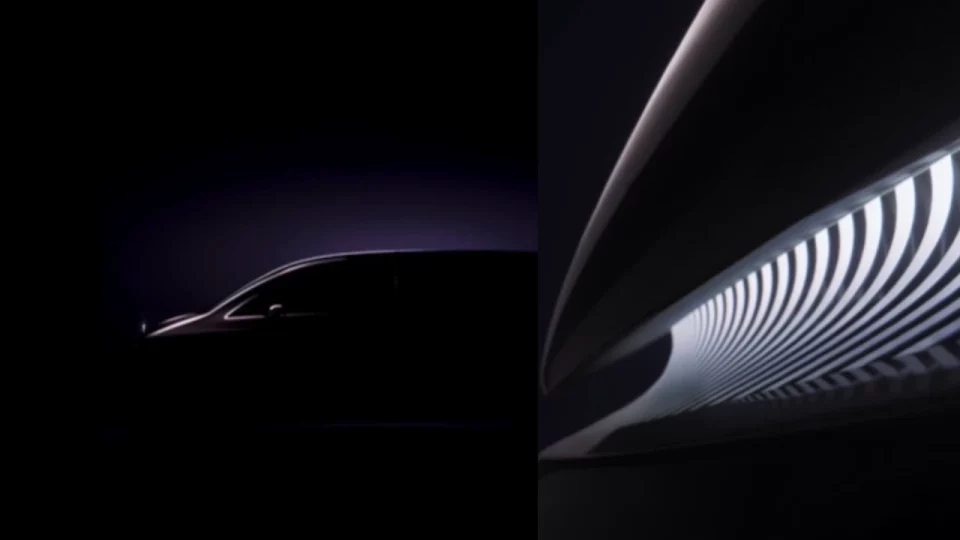In an era where electric mobility is steadily overtaking traditional fuel-driven vehicles, Mercedes-Benz is positioning itself at the forefront of the electric van revolution. With a bold announcement about its new electric vehicle platform, the Van Electric Architecture (VAN.EA), the German automaker is not only changing the way vans are conceived but is also aiming to set new standards in the luxury and commercial van segments.
Expected to redefine how we think about electric transportation, VAN.EA promises to push the boundaries of what an electric van can be, creating a completely new era of possibilities for both private buyers and commercial customers alike.
Table of Contents
The VAN.EA Platform
Mercedes-Benz’s new electric vehicle platform, VAN.EA, is being hailed as the future of electric vans. This modular and scalable architecture will serve as the foundation for a new generation of electric vans, allowing the company to offer a diverse range of models with varying sizes, capabilities, and features. The VAN.EA platform is designed to be adaptable to both luxury and commercial applications, ensuring that Mercedes can cater to a wide spectrum of customers from high-end buyers to businesses needing functional electric transport solutions.
A Modular and Scalable Foundation
One of the key advantages of the VAN.EA platform is its modular design. This allows Mercedes-Benz to offer a variety of vehicle configurations without having to develop entirely new platforms for each model. Whether it’s a compact city van or a larger people carrier, the modular nature of VAN.EA enables Mercedes to scale up or down depending on customer requirements, while maintaining the same level of performance and efficiency across the range.
The scalability of the platform also means that it can be adapted for various uses, from passenger transport to cargo hauling, with minimal modifications. Mercedes-Benz plans to produce electric vans that cater to both the luxury and commercial markets, ensuring that its electric vehicle offerings are as versatile as they are innovative. As the demand for electric vehicles continues to rise, this flexibility in design will allow Mercedes to quickly respond to changing market needs.
Distinguishing Between Luxury and Premium Segments
Mercedes-Benz’s decision to differentiate between luxury vans for private buyers and premium commercial vans is a significant one. According to the company, VAN.EA will allow them to create two distinct categories of electric vans: one for the high-end private market and another for commercial use, each with its own unique features and price points. The luxury segment will include sophisticated family buses, VIP shuttles, and lavish limousines, while the commercial range will focus on premium offerings aimed at businesses and fleets.
This strategic differentiation will not only help Mercedes target a broader audience but also enable it to push the boundaries of what’s possible in both segments. While the commercial electric van market is already becoming crowded with various manufacturers stepping up their game, Mercedes-Benz aims to set itself apart with an emphasis on luxury, performance, and exclusivity in the private segment. The company’s goal is clear: to produce electric vans that cater to customers who are looking for more than just a vehicle—they want an experience.
Hello world! Here we go – Mercedes-Benz Vans’ vision of a new era.
Just a first glimpse, but be sure: There is much more to come in spring 2025.#MercedesBenz #Van pic.twitter.com/G85nJNxUgM
— Mercedes-Benz (@MercedesBenz) December 13, 2024
A New Level of Comfort and Design
Mercedes-Benz has long been synonymous with luxury, and its future electric vans are set to take this reputation to new heights. The upcoming models that will be built on the VAN.EA platform are expected to feature some of the most luxurious and innovative designs ever seen in the van segment. According to Mercedes, these vans will represent “the most elegant vehicles in their class,” setting a new standard for luxury and comfort in transportation.
VIP Shuttles and Family Buses: The Epitome of Elegance
Among the most exciting plans for the VAN.EA platform is the introduction of ultra-posh VIP shuttles and family buses. These vehicles will offer an entirely new level of luxury, designed to cater to the needs of high-net-worth individuals and discerning families. Picture an electric van with luxurious seating, state-of-the-art entertainment systems, ambient lighting, and expansive cabin space. Whether it’s for a private family trip or a VIP transfer, these vehicles will redefine what it means to travel in style.
The VIP shuttles, in particular, will be designed with comfort in mind, featuring top-of-the-line materials such as leather upholstery, wood paneling, and high-tech screens embedded throughout the cabin. Mercedes is even envisioning a model that could feature fully reclining seats and individual climate control zones, creating an experience akin to a first-class flight but on the ground. For those who want to be driven in the lap of luxury, the upcoming Mercedes electric vans built on the VAN.EA platform will be the ultimate choice.
A Glimpse of the Future: The Concept Car Preview
Mercedes-Benz has promised a preview of what these luxury electric vans will look like with a concept vehicle set to be unveiled in the spring of 2025. This concept will provide a clear vision of the company’s direction for its future luxury vans and will likely showcase the most cutting-edge design elements and technologies that Mercedes plans to incorporate into its electric vehicles. The company is expected to highlight features such as fully customizable interiors, advanced driver-assistance systems, and a focus on sustainability.
While details of the concept are still under wraps, Mercedes has made it clear that it will be a showcase of innovation, comfort, and elegance. By blending modern electric technology with the brand’s signature luxury design language, the VAN.EA platform will ensure that Mercedes remains a leader in the high-end transportation sector for years to come.
Related: The Mercedes-AMG One’s Groundbreaking Arrival in the U.S.
